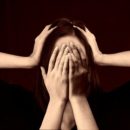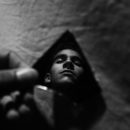Body Dysmorphic Disorder (BDD) Symptoms
Symptoms of Body Dysmorphic Disorder (BDD) Body dysmorphic disorder (BDD) is a somatoform disorder that closely resembles obsessive-compulsive disorder (OCD). Symptoms of body dysmorphic disorder include excessive concern about perceived physical flaws, defects, or imperfections. Individuals with body dysmorphic disorder become obsessed with these unwanted aspects of their appearance and perform a variety of rituals and avoidance behaviors in order to disguise or conceal these “flaws.” BDD symptoms typically result in extreme distress and a variety of social and occupational difficulties. Body dysmorphic disorder symptom areas vary between individuals and commonly focus on the skin, hair, weight, and specific facial features, such as the nose (Philips, 2005). In The Broken Mirror (2005), Dr. Philips breaks down the frequency of different types of BDD concerns: Skin 73% Genitals 8% Hair 56% Cheeks/cheekbones 8% Weight 55% Calves 8% Nose 37% Height...
Read MoreBody Dysmorphic Disorder (BDD)
What is Body Dysmorphic Disorder (BDD)? Body dysmorphic disorder (BDD) is not formally classified as an anxiety disorder; however, it shares many overlapping features with anxiety disorders like obsessive-compulsive disorder (OCD). In contrast to OCD which typically focuses on specific external feared outcomes, body dysmorphic disorder involves hyper-attention to one or more perceived bodily defects, imperfections, or flaws. BDD “flaws” are experienced as distressing and intolerable. In some cases, the imperfections that bother individuals with body dysmorphic disorder can be perceived by other people, but BDD magnifies and distorts these imperfections in the eyes of the sufferer. In other cases, individuals with BDD notice and attend to “flaws” that cannot be readily perceived by others. Regardless of the form of one’s symptoms, body dysmorphic disorder is associated with extreme distress and shame. Moreover, because BDD-related “flaws” are often perceived as being...
Read MoreWorry & “What If” Questions
Anxiety, Worry, & What If Questions If you have anxiety, it’s likely that you wrestle with worry and “what if” questions. Many what if questions are easily recognizable and start with the obvious, “What if…?” Others are more subtle and begin with phrases like “How am I ever going to…?” By definition, what if questions prompt us to solve problems that haven’t actually happened yet. The possibilities are truly endless. These worries may involve fears about current situations or about situations set far in the future. What if questions are often difficult to resist because by answering them, we often feel that we become more mentally “prepared” or “ready” to deal with life’s uncertainties. In fact, many individuals feel stressed out if they ignore their worries. They think that because what ifs involve potentially dangerous situations, it’s irresponsible or...
Read MoreHit-and-Run OCD
“Hit and run” OCD involves the fear of accidentally hitting a pedestrian while driving. In most cases of hit-and-run obsessive-compulsive disorder, fears focus on unintentionally killing, injuring, or maiming a victim. Other individuals worry about causing car accidents or causing other vehicles to swerve and hit pedestrians. Fear of Driving Hit-and-run OCD, or motor vehicle accident OCD, is distinct from other syndromes that involve anxiety about driving or the fear of car accidents. Hit and run OCD differs from panic– or agoraphobia-related driving avoidance, in which individuals fear driving due to the possibility of having a panic attack while in the car. Diagnosis of hit and run OCD is slightly more complicated in cases in which one fears “losing control” while driving, as this symptom can reflect either panic or OCD. In the case of panic, this fear is...
Read MoreScrupulosity
What is Scrupulosity? Scrupulosity is a form of obsessive-compulsive disorder (OCD) characterized by religious and/or moral obsessions. Scrupulosity can sometimes be difficult to recognize because even within a single faith community, religious beliefs and practices vary widely. There is no singular belief or behavior that is diagnostic for scrupulosity. Instead, scrupulosity is best regarded as a pattern of beliefs and behaviors associated with excessive worry about having committed a sin or engaging in immoral acts. Concern may focus either on thoughts or actions already taken or the possibility of committing sins in the future. This results in significant emotional distress, guilt, and despair. Scrupulous individuals also worry about the sinfulness of having bad thoughts. This experience is very similar to individuals with OCD who experience harm-related obsessions (e.g., the fear of harming a child or loved one). People with...
Read MoreScrupulosity & OCD: Religious/Moral Symptoms
Question: I have scrupulosity (religious/moral obsessive-compulsive disorder), and I am triggered by religious posts on Facebook. When I see a religious post, I feel like I have to repost it or God will be mad at me. I also worry about what other people think about these reposts, which then leads me to fear that God will judge me for worrying. Any suggestions for treating scrupulosity (religious OCD)? Religious Scrupulosity/OCD For many people with OCD/scrupulosity, treatment can be especially confusing at first. Every action or inaction can feel potentially dangerous, which is why scrupulosity often goes untreated for so long. The very fact that you recognize that this is related to obsessive-compulsive disorder is excellent. It also sounds like you have insight about your OCD symptoms and the OCD positive feedback loop. Many people with religious obsessions don’t realize...
Read More








